Columns
Hardship Grant controversy: More States Dispute FG’s Claim of Disbursing N573 Billion Grant
Published
8 months agoon
By
Ekwutos Blog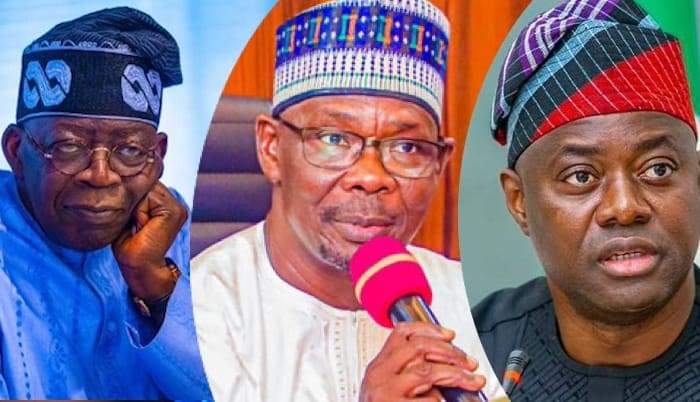
More states have refuted President Tinubu’s claim of a N573bn hardship fund, clarifying it’s a World Bank loan, not a grant.
The controversy surrounding the purported disbursement of N573 billion to subnational governments announced by President Bola Tinubu during a nationwide broadcast on Sunday, continued on Friday, as more States denied receiving such fund from his administration.
Just like the Governor of Nasarawa State, Abdullahi Sule, on Thursday, faulted the claim by the President, Governor of Oyo State, Seyi Makinde, yesterday, also denied receiving the N573 billion hardship grant claimed to have been given to the state governments by the federal government.
Abia and Osun State governments also indicated that they were yet to receive such funds, maintaining that the World Bank intervention was a loan to States and not a grant from the Nigerian government. Other states contacted also declined to comment, in an apparent move not to be seen as being in conflict with the President.
Tinubu had while addressing Nigerians in a broadcast during the #EndBadGovernance nationwide protests against hunger and hardship, said the government had disbursed N573 billion to the 36 states.
However, in a newsletter No 95 |August 2024 personally signed by Makinde, which was shared on his X handle, he said the state was not in the know of such a grant.
Makinde explained: “In my newsletter tonight, I responded to a question from a concerned citizen of Oyo State regarding the claim that the Federal Government ‘gave’ States over N570 billion as some kind of ‘hardship fund’ for citizens.
“Before I speak more on further actions we have taken to show our commitment to productivity and sustainability, let me respond to a long message I received earlier in the week from a concerned citizen. The message was about a purported N570 billion Hardship Fund “given” to the 36 States by the Federal Government. I was queried about what I used the money for.
“Let me state categorically that this is yet another case of misrepresentation of facts. The said funds were part of the World Bank-assisted NG-CARES project—a Programme for Results intervention.
“The World Bank facilitated an intervention to help States in Nigeria with COVID-19 Recovery. CARES means COVID-19 Action Recovery Economic Stimulus. It was called Programme for Results because States had to use their money in advance to implement the programme. After the World Bank verified the amount spent by the State, it reimbursed the States through the platform provided at the Federal level. The Federal Government did not give any State money; they were simply the conduit through which the reimbursements were made to States for money already spent.
“It is important to note that the World Bank fund is a loan to States, not a grant. So, States will need to repay this loan. Note also that NG-CARES, which we christened Oyo-CARES in our State, predates the present federal administration.
“So, in direct response to the message, the Federal Government did not give Oyo State any money. We were reimbursed funds (N5.98 billion in the first instance and N822 million in the second instance) we invested in the three result areas of NG-CARES, which includes inputs distribution to smallholder farmers within our State. In fact, when the World Bank saw our model for the distribution of inputs preceded by biometric capturing of beneficiary farmers, they adopted it as the NG-CARES model.”
Makinde’s denial comes on the heels of controversies that greeted the nationwide hunger and hardship protests.
Also, Abia State Commissioner for Finance, Mr. Mike Akpara, in response to THISDAY’s enquiry, said the federal government’s comment about the purported grant “is vague”.
“They should come out clear and state categorically what they gave each state,” he said, adding that when that is done, governors could be held accountable on how they spent the money.
Akpara, expressed doubt if the federal government was sure of its claims on the disbursement of the said grant to states and wondered if the amount was calculated based on the rice it distributed to states or other forms of palliatives.
According to him, loans are applied for, negotiated and processed on individual basis and any state that needed loan would pursue it without recourse to other states as a group.
Also, responding to THISDAY’s enquiries, a source from Osun State government that pleaded to remain anonymous, said the N573 billion hardship grant claimed to have been given to the state governments by the federal government was not the truth.
Governor Sule had in an interview with Channels Television, stressed that the World Bank loan received by states was for infrastructural projects and not to cushion the effects of hardship faced by Nigerians.
The governor had explained that states received the money in batches with the latest received in June, stressing that it was a loan and not free funds and was initiated in 2020.
“The money is tied to certain projects. It is almost like a regimented loan from the World Bank. The money is not for rice, it is not for palliatives, it is not for anything in that line.
“That money came from the World Bank and that was the second disbursement which came in November last year. The amount was credited to the account of every other state, sometime around January.”
Many Nigerians, including a senior lawyer, Mr. Femi Falana, a human rights crusader and the Chair, of Alliance on Surviving Covid-19 and Beyond (ASCAB), had since the announcement by the President been challenging states and the Federal Capital Territory (FCT) to explain how they spent the N573 billion.
Follow Ekwutosblog to stay informed of all the latest updates
You may like
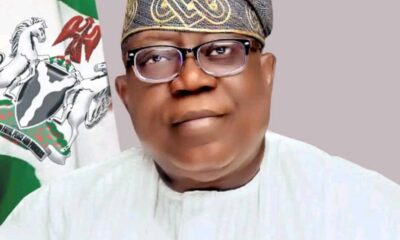

DISCLAIMER: FEDERAL CIVIL SERVICE COMMISSION DISOWNS FICTITIOUS CANDIDATES’ SHORTLISTS


WHAT PRESIDENT TINUBU DISCUSSED WITH US PRESIDENT TRUMP’S ADVISOR
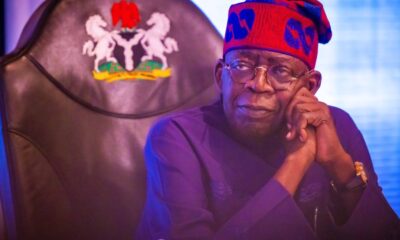

Nothing new to reveal – Presidency reacts to US court order on Tinubu’s records
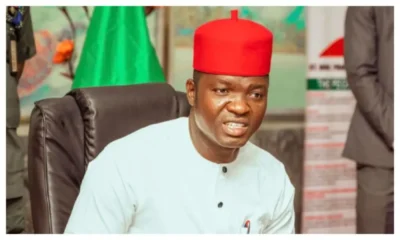

Gov Nwifuru didn’t sign any agreement to relinquish power in 2027- Ebonyi APC
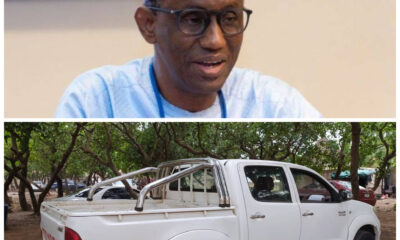

FACT CHECK: No Office of the NSA Vehicle Was Stolen
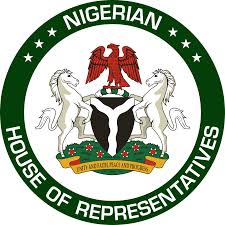

House of Representatives Forms 19-Member Ad-Hoc Committee to Oversee Rivers State Amid Political Crisis
Columns
Plateau killings: Declare killer herdsmen terrorists – Ex-military administrator tells FG
Published
1 day agoon
April 12, 2025By
Ekwutos Blog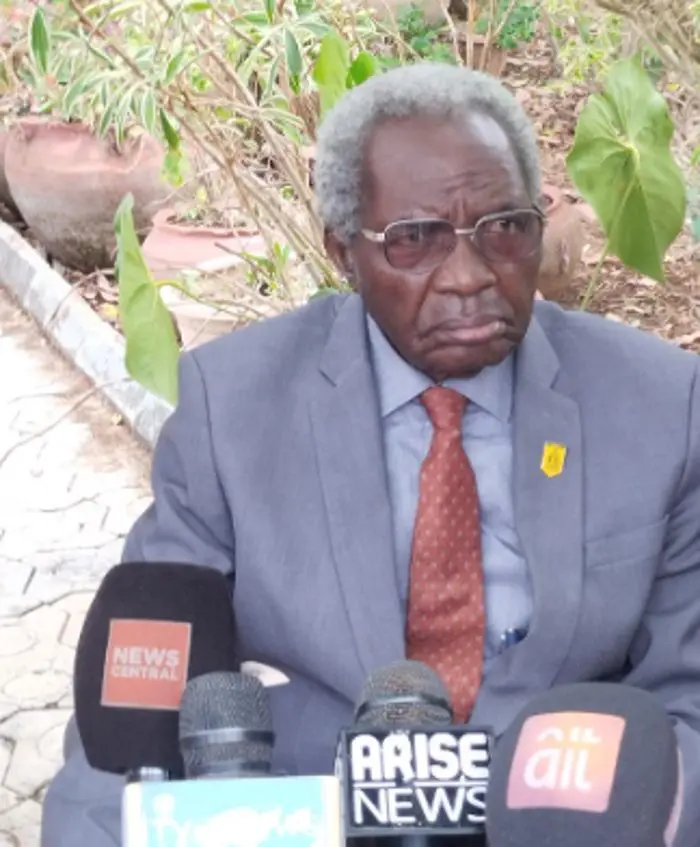
A former military administrator of Plateau State, Real Admiral Bitrus Atukum (rtd) has called on the Federal Government to declare the Fulani herdsmen attacking communities in the state as terrorists.
He said the target of the assailants is to keep the citizenry under perpetual poverty.
Atukum equally accused the killer herdsmen of “economic sabotage”, noting that they attack mostly when the planting and harvest seasons are approaching.
He equally observed that another reason for the attacks is purely land grabbing.
The retired army officer lamented that government is fighting insecurity on the Plateau with kid gloves.
Atukum’s comments followed recent killings in Bokkos LGA of Plateau State.
Ekwutosblog recalls that over 50 people were recently killed, thousands displaced and their means of livelihood destroyed in some communities of Bokkos LGA.
“The endless attacks on villages by the Fulani is a strategic act of terrorism, as such government should note this and label them as terrorists who are not only at war with armless and harmless civilians, but the country as a whole,” he said.
Atukum called on the citizens to defend themselves against the aggressors to protect their ancestral lands.
The former military administrator also decried last Tuesday’s press briefing held in Kaduna by one Garba Abdullahi Mohammed, a leader of Fulani groups.
“All these details given at that press briefing can be verified; government has relevant information as to where it can start the investigation.
“You cannot allow people under the pretext of the freedom of speech to be making this kind of statements, few days after the killings in Bokkos. These are unprovoked attacks!
“In the past, they used to say farmer-herder clash. How can you have clash in someone’s bedroom?
“Government is fighting this insecurity on the Plateau with kid gloves.
“I would have expected that on the Plateau, where you have hills and small mountains that are being inhibited by these Fulani herdsmen; what is the difficulty in ordering the army to and fish them out there?
“These people come down from these hills, commit havoc and disappear, and that is where they hide their weapons.
“So I just believe in addition to what the government is doing, they can do more,” he stressed.
Columns
Montreal police arrested seven people who are believed to have ties to an Italian Mafia clan on Wednesday morning.
Published
3 days agoon
April 11, 2025By
Ekwutos Blog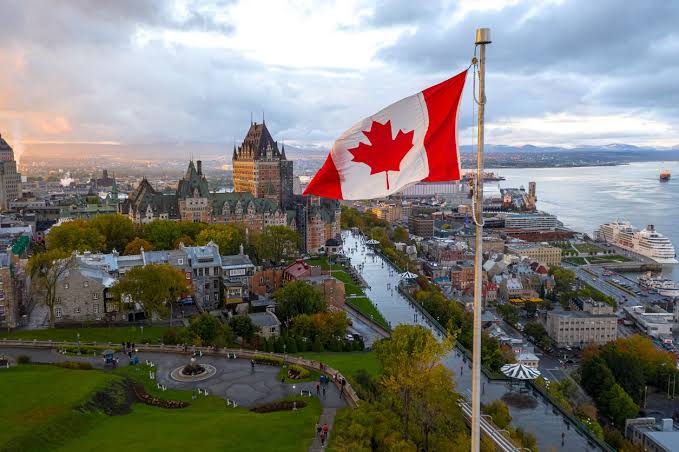
Six men, ages 34 to 59, and a 44-year-old woman were arrested, said the Service de police de la Ville de Montréal (SPVM). Around 40 officers were involved in the operation.
The arrests, which mark the final phase of the Americano Project, were made in the boroughs of LaSalle and Verdun, as well as in Brossard.
ADVERTISEMENT
“It’s going to hurt traditional Italian organized crime in this area,” Francis Renaud, head of the SPVM’s organized crime unit, told reporters on Wednesday morning.
“We’re used to seeing traditional Italian organized crime in the Saint-Léonard area … but in LaSalle, it’s a well-hidden stronghold.”
Who are the suspects
The seven individuals, whom Renaud believes to be the “most influential people” in LaSalle, operated under the radar, he said. They were very well-known by the LaSalle community and some of them owned businesses.
Large-scale drug trafficking of cocaine was their specialty, said Renaud, and their team would sell drugs to resellers. Their clients were from all over the province.
Francis Renaud
Francis Renaud is the head of Montreal police’s organized crime unit. (Ivanoh Demers/Radio-Canada)
Renaud added that the individuals collaborated with other known criminal organizations, groups that would’ve previously been considered “enemies.”
ADVERTISEMENT
“In LaSalle, it’s pretty special,” said Renaud.
“The Italian organized crime [there] are not afraid to mix with other organized crime that we know, the bikers, the Irish, to make their business go on. And they’re getting along. That’s the special effect of LaSalle.”
Various charges
The suspects will appear at the Montreal courthouse by the end of the day.
Five of them are facing charges of committing an offence for the benefit of a criminal organization, drug trafficking and possession of substances for the purpose of trafficking, according to the SPVM.
Previous phases of the criminal investigation, which began in August 2023, led to the seizure in January and May 2024 of more than 32 kilograms of cocaine, over $2.2 million in cash, four kilograms of crystal methamphetamine, 12 firearms and several other items of evidence, said the police.
Three individuals who were previously arrested as part of the investigation have already appeared in court and were released. Renaud said they will appear again in court “probably with slightly more severe charges” than the initial charges they were facing.He explained that Wednesday’s operation included wiretaps, video surveillance and investigators working day and night for two years.
Renaud said “of course” the organization will find replacements for those arrested, which will force his unit to launch another investigation.
“It’s our job to monitor the intel and to see [who] is coming in to take the place and do the exact same thing again, and see you guys in a year or two,” said Renaud with a smile.
Columns
Scores forced to leave US as Trump administration revokes student visas
Published
3 days agoon
April 10, 2025By
Ekwutos Blog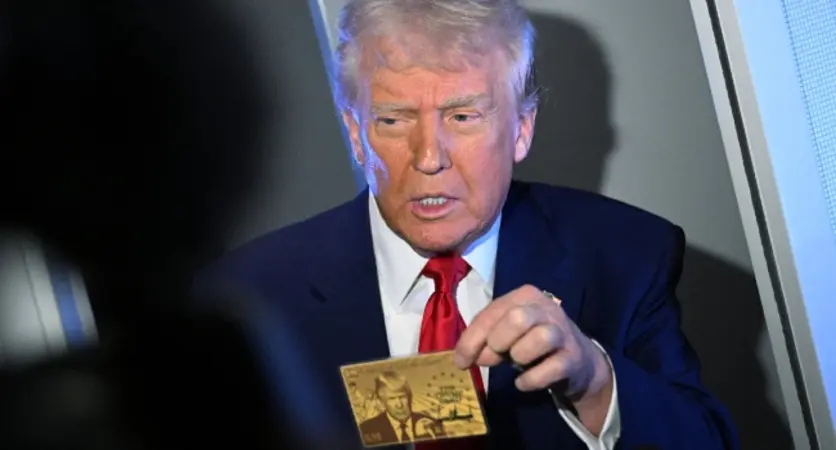
The administration of President Donald Trump has revoked the visas of hundreds of international students, forcing many to exit the US within days.
Some students reportedly received unexpected texts or emails, while others discovered their cancellations through the Federal Student Exchange and Visitor Information System.
Universities across states like California, Colorado, Ohio, and Florida reported cases, though many declined to share details due to student privacy.
According to immigration experts, the scale is unprecedented
“I’ve been doing this for 25 years and I’ve never seen 300 students lose their visas. It’s all political,” immigration attorney Len Saunders said.
Ekwutosblog reports that some visa cancellations appear linked to minor issues like traffic violations or roommate disputes, while others may be tied to participation in pro-Palestinian protests.
Meanwhile, Secretary of State Marco Rubio claimed responsibility for revoking no fewer than 300 visas, calling the students “lunatics” for their activism.
“Every time I find one of these lunatics, I take away their visas,” he said.
The students affected are not being detained but told to leave the country within seven days.
This development has sparked protests, including at the University of Arizona and Tufts University, where Turkish student Rumeysa Öztürk was detained despite holding a valid visa.
Colorado State University confirmed six student visa revocations, while the University of Massachusetts-Amherst said five students were affected.

DISCLAIMER: FEDERAL CIVIL SERVICE COMMISSION DISOWNS FICTITIOUS CANDIDATES’ SHORTLISTS

WHAT PRESIDENT TINUBU DISCUSSED WITH US PRESIDENT TRUMP’S ADVISOR

Nothing new to reveal – Presidency reacts to US court order on Tinubu’s records
Trending

 Trending6 months ago
Trending6 months agoNYA demands release of ‘abducted’ Imo chairman, preaches good governance
- Business6 months ago
US court acquits Air Peace boss, slams Mayfield $4000 fine

 Politics6 months ago
Politics6 months agoMexico’s new president causes concern just weeks before the US elections
- Entertainment6 months ago
Bobrisky transferred from Immigration to FCID, spends night behind bars
- Entertainment6 months ago
Bobrisky falls ill in police custody, rushed to hospital

 Politics6 months ago
Politics6 months agoRussia bans imports of agro-products from Kazakhstan after refusal to join BRICS

 Politics6 months ago
Politics6 months agoPutin invites 20 world leaders
- Politics1 year ago
Nigerian Senate passes Bill seeking the establishment of the South East Development Commission.

